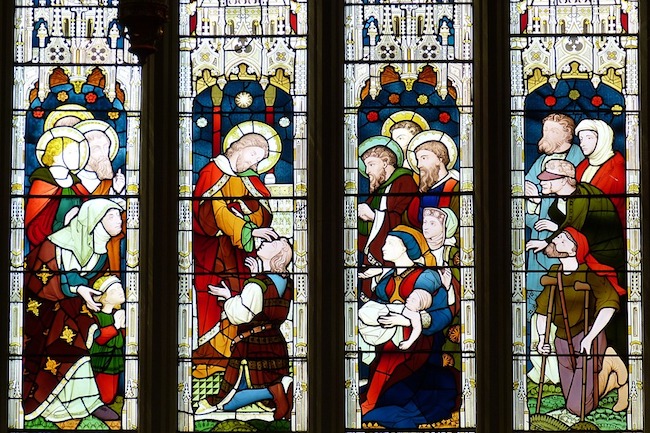How is Jesus’ sacrifice propitiation for our sins? from Compelling Truth
The definition of propitiation is to appease or to satisfy. In many religions, people seek to appease God or the gods with a variety of actions or rituals they believe will make their God or gods pleased. In contrast, Christianity reveals that Jesus Christ is our propitiation, the One who has satisfied the Father on our behalf so we can be forgiven of our sins and have eternal life.
How did Jesus become our propitiation? Hebrews 2:17 explains, “Therefore he had to be made like his brothers in every respect, so that he might become a merciful and faithful high priest in the service of God, to make propitiation for the sins of the people.” By taking on a human form, Jesus came and offered Himself as a sacrifice on our behalf through His death on the cross.
Three other passages in the New Testament also note the important role of Christ’s propitiation. Romans 3:24-25 says we “are justified by his grace as a gift, through the redemption that is in Christ Jesus, whom God put forward as a propitiation by his blood, to be received by faith.” Here, the blood of Jesus shed on the cross is emphasized as what appeased God or served as our propitiation.
In 1 John 2:2 we also read, “He is the propitiation for our sins, and not for ours only but also for the sins of the whole world.” This verse reveals the extent of Christ’s propitiation. Christ’s sacrifice was sufficient to pay for the sins of every person in the world. This does not mean that every person is saved and will go to heaven. Instead, it refers to the truth presented in John 3:16 that God will give eternal life to anyone who believes in Jesus Christ.
First John 4:10 offers an additional insight regarding the biblical view of propitiation: “In this is love, not that we have loved God but that he loved us and sent his Son to be the propitiation for our sins.” God’s love led to the radical decision to send Jesus to die in order to pay the penalty for our sins. Propitiation, or satisfying God’s requirement for salvation, was paid for by Christ Himself. Salvation is a free gift from God, not something we earn. As Ephesians 2:8-9teaches, “For by grace you have been saved through faith. And this is not your own doing; it is the gift of God, not a result of works, so that no one may boast.”




